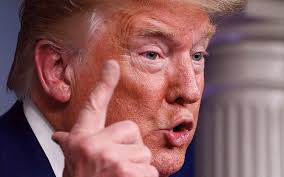World
Obama lauds theatres’ decision to screen film

Washington: President Barack Obama has applauded Sony Pictures’ decision to authorise the screening of “The Interview” — a film satirising North Korean leader Kim Jong-un — in independent theatres, the White House said.

“As the President made clear, we are a country that believes in free speech, and the right of artistic expression,” White House spokesman Eric Schultz said.
“The decision made by Sony Pictures and participating theatres allows people to make their own choices about the film, and we welcome that outcome,” the spokesman said.
The screening of the film in the US, scheduled for Dec 25, was cancelled after Sony was targetted with a hacking attack, which the US administration attributes to North Korea, and the cyber-pirates subsequently threatened to cause panic at movie theatres showing the film.
At least two independent US theatres announced Tuesday that they will show “The Interview”.
Atlanta’s Plaza Theatre and The Alamo Draft house in Dallas are going to show the film on Christmas Day, the owners of those theatres announced.
Sony confirmed that it will authorise those theatres to show the film, a comedy with Seth Rogen and James Franco about a fictitious US plot to assassinate North Korean leader Kim Jong-un, something that the Pyongyang government had called an “act of war”.
“We have never given up on releasing ‘The Interview,’,” said Sony Entertainment CEO Michael Lynton. “While we hope this is only the first step of the film’s release, we are proud to make it available to the public and to have stood up to those who attempted to suppress free speech.”
Earlier, Tim League, the owner of The Alamo Drafthouse, wrote on Twitter that Sony had authorised the showing of “The Interview” on Christmas Day, and said that tickets would go on sale immediately.
James Wallace, the creative manager for Dallas theatre, also said the film will be shown there and that the tickets were being made available to the public.
In the Nov 24 cyber-attack, the hackers stole, among other data, Social Security numbers and medical records of over 3,000 of the Sony’s employees.
In addition, the cyber-pirates — calling themselves the “Guardians of Peace” — stole five new feature length films from Sony, one of Hollywood’s largest film studios, and leaked them on the internet prior to their scheduled releases.
The US government has also begun reevaluating whether or not to place North Korea back on the State Department’s list of countries that sponsor terrorism after the cyber-attack. Former president George W. Bush had removed Pyongyang from the list in 2008.
Obama said last Sunday that the attack on Sony Pictures was not an “act of war” but one of “cyber-vandalism” to which the US would give a “proportionate” response.
North Korea Monday found that it was cut off completely from the internet for yet undetermined reasons, several days after the US had blamed that country for the cyber-attack.
World
Lockdowns in China Force Urban Communities to Defy Censorship and Vent Frustration Online

Shanghai’s rich middle class is leading a wave of online dissent over the strict and prolonged lockdowns imposed in various parts of the country. Chinese internet censorship is struggling as patience is wearing thin in many urban centers, coming up with creative forms of online protests.
Social Media Posts Revealing Lockdown Tension in Shanghai
Drawn-out lockdowns are nothing new in China as authorities insist with the nation’s zero-Covid policy since the start of the pandemic. Currently over This time around, however, metropolitan areas like Shanghai are increasingly difficult to keep quiet, given that its more than 25 million residents have seen weeks of total isolation along with food shortages and many other service interruptions.
Dozens of towns and reportedly over 300 million Chinese citizens have been affected by lockdowns of different severity. As expected, urban netizens have been most outspoken over their difficulties by finding creative ways to get around state censorship and bans placed on topics, news comments and spontaneous campaigns.
Shanghai residents have been using mobile proxies and hijacking seemingly unrelated hashtags to talk about healthcare issues, delivery failures and the overall severity of their situation. The “positive energy” that the Chinese government wants to transmit during the recent prolonged series of lockdowns does not come naturally to those counting food supplies and online censors are working hard to filter words, trending topics and undesired social media sharing.
WeChat groups and message threads are under constant monitoring. Posts questioning the zero-Covid approach have been quickly deleted, including by leading Chinese health experts like Dr. Zhong Nanshan. Video footage is soon censored and protests and investigations are quickly made to disappear.
Where this has not worked, officials have exposed banners with warnings and outright threats like “watch your own mouth or face punishment”, while drones have been patrolling the city skies. Yet, if anything, this has led to further tensions and unspoken confrontation with Shanghai’s educated and affluent middle class.
Creative Online Solutions Harnessing Civic Energy
Announcements by Chinese social media that they would be publishing the IP addresses of users who “spread rumors” have not helped either. Tech industry research has shown that much of Asia’s tech-savvy population has a habit of using mobile proxies and other privacy tools, quickly finding workarounds to browse the internet freely and talk to the world about the hottest topics.
The sheer volume of forbidden posts is already a challenge for the very censorship system, experts explain. Unable to track all trending hashtags, state workers overlook topics that speak about the US, Ukraine or other popular news. Linking human rights elsewhere to their situation, Chinese online dissidents establish their informal channels and “hijack” the conversation to share personal or publicly relevant information about the Covid suppression in their town.
Sarcastic and satirical posts still dominate. Others hope to evade the censors by replacing words from famous poems or the national anthem. One thing is certain – social media, when harnessed with the right creativity, has proven its ability to mount pressure on the government in even some of the most strictly controlled tech environments like China.























